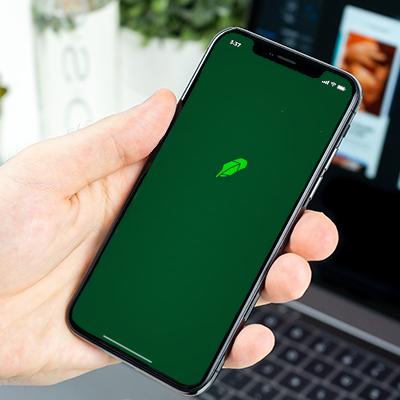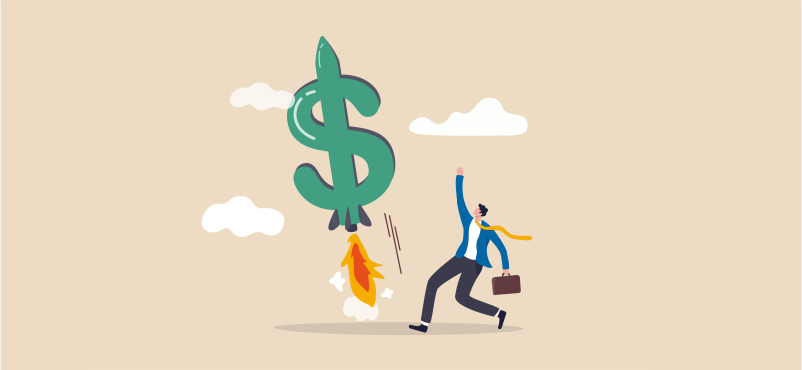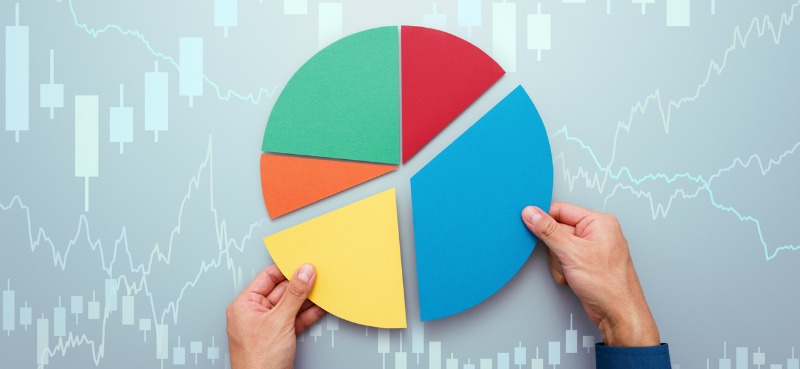If you’ve followed the news recently, I’m sure you’ve heard of Robinhood and its role in the Reddit stock mania.
But did you know that the investing app has over 13 million customers?
Or that it was the first brokerage to launch commission-free trading?
It also played a large role in the soaring market last year, helping bring a younger demographic into the investing world.
This small investing app may be all over the news, but is it suited for all investors?
Today, I’ll explain how Robinhood evolved from a basic investing app into a Wall Street disruptor… and weigh the pros and cons of investing with its platform.
What is Robinhood?
Robinhood is an online investing platform offering commission-free trading. The company’s premise was that investing should be available to everyone.
For decades, trading fees made investing too expensive for many folks. So in the 1990s, discount brokerages began to emerge, offering clients a lower-cost alternative to full-service brokerages.
But Robinhood’s founders—Vladimir Tenev and Baiju Bhatt—thought a $10 commission was still too expensive. That’s because it only costs a broker fractions of a penny to execute a trade.
In 2015, they launched Robinhood as a mobile app and website. The platform offers free trading for stocks, ETFs, options, and cryptocurrencies. This makes it especially popular for first-time, millennial investors.
While other brokerages eventually slashed their fees to compete, Robinhood continued to grow its customer base by offering no account minimums and an easy-to-use interface. It also let users trade fractional shares, giving small investors access to high-priced stocks. For example, one share of Amazon (AMZN) currently trades for well over $3,000, putting it beyond the reach of many first-time investors.
Today, the company has over 13 million customers, 80% of which are millennials.
How Robinhood works
You may be wondering how Robinhood makes money. It’s a good question, since it’s a free app that charges no commissions.
Robinhood generates revenue by making tiny amounts of money on each trade. It does this by selling its customer order flow to wholesale market makers. In other words, market makers are willing to pay Robinhood to fill the orders from its platform.
That means the company needs to attract large numbers of users, which is why it offered free commissions in the first place. Robinhood targets first-time investors by offering a free single share of a stock for opening a new account. Many investors sign up hoping to get a share of Tesla (TSLA) or Apple (AAPL), but that’s rarely the case. About 98% of the time, the free stock is worth between $2.50 and $10. Users can get additional free shares by inviting friends to join Robinhood.
To continue to generate money, Robinhood needs its users to keep trading. It uses many of the same “behavioral triggers” that mobile gaming apps rely on to keep users engaged. For example, it sends congratulatory messages whenever a user completes a basic task, like funding their account. It also sends push notifications to alert users of movements in their positions. These triggers bring users back to the app.
Robinhood’s offerings
The assets you can trade on Robinhood’s platform is one area where it comes up short.
As I mentioned earlier, users can trade stocks, ETFs, options, and cryptocurrencies. But they can’t invest in mutual funds, fixed income (bonds), or over-the-counter (OTC) stocks.
Besides trading, users can access an assortment of educational content. This includes the Robinhood Snacks newsletter and podcast, which summarizes the market each day. There’s a library of educational articles on different aspects of personal finance and investing. Robinhood also has an education-focused YouTube channel.
To use all of Robinhood’s features, users need to sign up for Robinhood Gold. This service offers investors the ability to trade on margin (meaning you can borrow money to fund trades). The monthly fee is $5, and users don’t have to pay interest on the margin. Robinhood Gold also gives users access to Level II market data and professional research.
Trading experience
Robinhood allows users to make trades from its app or its website. Both have a similar look and easy-to-use interface. But customizing your trade can be confusing. When you click the “Buy” button you’re only shown the option for a market order (meaning you’ll buy at the current market price). You need to click on “market order” to see other order types, such as limit and stop orders.
In October, Robinhood also added a feature called Recurring Investments. This allows users to automate their investing. For example, you could set your account to buy $100 worth of a certain stock on the first day of every month.
Robinhood in the news
While the company has steadily grown its user base since launching in 2015, it got even more popular last year. Due to a combination of soaring tech stocks and more free time, many younger investors flocked to the Robinhood platform. Stuck at home with nothing to do besides binge-watching Netflix, Robinhood became the perfect pandemic pastime.
Robinhood’s surging popularity helped create a retail buying frenzy… and allowed its traders to move the markets in some cases.
Last summer, shares of Eastman Kodak (KODK) exploded higher after the company said it was getting funding from the government for COVID research. Robinhood traders flocked to the stock, sending Kodak shares up more than 2,750% in a week. It’s an example of how Robinhood works like a social media platform… where fear of missing out (FOMO) can trigger “herd behavior” in the user base.
The company publishes a list of the 100 most popular stocks held by investors on their platform. Some hedge funds use this list as a data point for gauging retail investor sentiment.
But the biggest knock on Robinhood is its reliability. The platform has a long history of outages that disrupt service, making it impossible for users to trade on certain busy days for the market. This led to a series of class-action lawsuits. Most recently, the family of Alex Kearns, a 20-year-old college student, sued Robinhood for wrongful death after Alex took his own life, thinking he’d lost $730,000 on the app.
Robinhood also suffered intense criticism after it restricted trading in GameStop (GME) and other heavily-shorted stocks. A few weeks ago, a large group of retail investors created a short squeeze in shares of GameStop. The buying started on Reddit, a social media platform where the stock had gained a cult following. As the situation went viral, shares of GameStop soared above $480 on January 28. The price was under $19 just three weeks earlier.
While many retail traders profited as GameStop exploded higher, some hedge funds with short bets suffered considerable losses. The volatility led Robinhood to restrict trading. But many users believe Robinhood was protecting the Wall Street hedge funds. The optics weren’t great.
The truth is, Robinhood needed to meet increased deposit requirements from clearinghouses. Nevertheless, a group of retail investors have already filed a class-action complaint against the company.
Is Robinhood right for you?
While the app may help new investors get their foot in the door, the addictive nature of Robinhood’s business model is troubling.
To be fair, there are many things I like about Robinhood—its commission-free trading, fractional shares, and easy-to-use interface. But I believe there are better online brokerages that offer a more reliable platform, better customer service, and more features… while still offering commission-free trading.
This is especially true if you’re focused on stocks, ETFs, and mutual funds. But if you’re looking for a simple solution to trade cryptocurrencies, Robinhood might be worth a look.
Editor’s note:
If you’re struggling to understand cryptos, or which are worth investing in today… check out Frank’s Crypto Intelligence advisory.
This portfolio is showing astounding gains… We’re talking two 10-baggers and one 16-bagger to date.
With this service, you’ll learn everything you need to know to invest in the right cryptos. Plus, you’ll have a front-row seat to a new digital asset Frank believes will be even bigger than bitcoin…

















